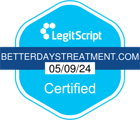Understanding Dual Diagnosis Treatment: The Intersection of Mental Health and Addiction
Dual diagnosis, also known as co-occurring disorders, is a complex and often challenging issue that affects millions of individuals worldwide. It occurs when an individual experiences both a mental health disorder and a substance use disorder simultaneously. This intersection of mental health and addiction can create a vicious cycle, with each condition exacerbating the other. Understanding the nature of dual diagnosis is the first step toward effective treatment.In this section, we’ll explore the dynamics of dual diagnosis, including how mental health disorders and addiction can interact, common combinations of disorders, and the importance of addressing both aspects of a dual diagnosis in treatment.
The Comprehensive Approach to Dual Diagnosis Treatment
Treating dual diagnosis treatment requires a holistic and integrated approach that recognizes the interconnectedness of mental health and addiction. Fortunately, the field of mental health and addiction treatment has evolved significantly to offer comprehensive solutions for individuals facing dual diagnosis challenges.This section will delve into the various components of a comprehensive dual diagnosis treatment plan. It may include elements such as:
- Medical Detoxification: For individuals with substance use disorders, detoxification under medical supervision may be the initial step to safely manage withdrawal symptoms.
- Psychiatric Evaluation: A thorough assessment by mental health professionals to diagnose and develop a treatment plan for co-occurring mental health disorders.
- Medication Management: When appropriate, medications can be prescribed to manage mental health symptoms and cravings associated with addiction.
- Therapeutic Interventions: Evidence-based therapies, such as cognitive-behavioral therapy (CBT), dialectical-behavior therapy (DBT), and trauma-informed care, can help individuals address both their mental health and addiction issues.
- Group and Individual Counseling: Supportive counseling sessions and group therapy can provide individuals with valuable tools for coping with their conditions and building a strong support network.
The Role of Dual Diagnosis Treatment
Dual diagnosis treatment requires specialized knowledge and expertise due to its complexity. In this section, we’ll explore the crucial role of dual diagnosis specialists, including psychiatrists, psychologists, addiction counselors, and social workers. These professionals work collaboratively to provide tailored treatment plans that address both mental health and addiction aspects.Additionally, this section will highlight the importance of ongoing assessment and adjustment of treatment plans to meet the evolving needs of individuals with dual diagnosis. Personalized care is essential for long-term success.

